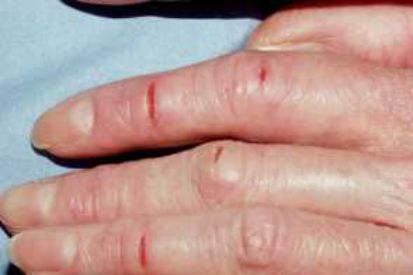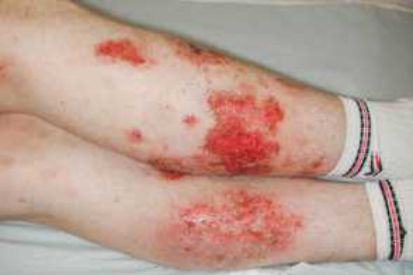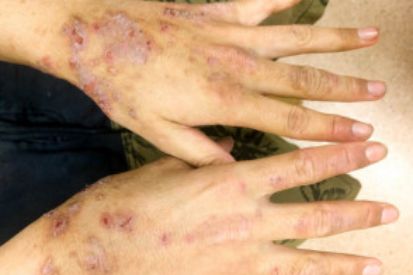Eczema
At Macaione and Papa, our skin experts can provide personalized recommendations based on your specific symptoms and triggers. It is crucial for individuals with eczema to work closely with a skin care provider to develop a comprehensive care plan that addresses your unique needs and helps manage the condition effectively.
With proper dermatological care and guidance, you can regain your skin confidence and manage your eczema. Contact us at our South Jersey location.
Examples of Eczema




What are the symptoms of Eczema?
- Dry, sensitive skin.
- Intense itching.
- Red, inflamed skin.
- Recurring rash.
- Scaly areas.
- Rough, leathery patches.
- Oozing or crusting.
- Areas of swelling.
Causes of Eczema
- Specific gene variations can affect the skin's ability to provide an effective barrier against irritants and allergens.
- Exposure to certain irritants or allergens, such as harsh soaps, detergents, fragrances, and certain fabrics.
- Your immune system may overreact to certain substances, leading to inflammation and skin irritation.
How to Prevent Eczema
- Gentle skincare and cleansers.
- Avoiding hot baths and tight clothing.
- Seeking medical advice from a dermatologist.
Eczema FAQs
Flare-ups can be triggered by allergens, irritants, environmental factors, and stress.
No, eczema is not contagious; it is a non-communicable skin condition.
Yes, eczema can affect individuals of all ages, from infants to adults.
While there is no cure for eczema, it can be effectively managed with proper treatment and lifestyle adjustments.
Gentle skincare practices, such as using mild soaps, avoiding hot water, and applying moisturizers regularly, can help alleviate eczema symptoms.
Dermatologists are instrumental in effectively managing eczema, a chronic skin condition causing inflammation and itching. They excel in diagnosing eczema accurately by considering medical history and symptoms. Crafting personalized treatment plans, they recommend skincare routines, medications like corticosteroids or antihistamines, and advise on triggers and lifestyle changes. Dermatologists also monitor progress, offer advanced therapies for severe cases, and prevent complications like infections. Their guidance, education on proper skincare, and ongoing support significantly improve symptom control, enhancing the quality of life for eczema patients.
From Our QualDerm Family of Providers: Eczema Symptoms
How to Treat Eczema
Dermatologists offer specialized care to manage eczema symptoms and improve the quality of life for individuals with this chronic skin condition. Treatments commonly include:
- Prescription Medications: Dermatologists may prescribe topical corticosteroids or non-steroidal anti-inflammatory creams to alleviate inflammation and itching.
- Topical Medications: These medications help modulate the immune response, reducing inflammation in the affected skin areas.
- Systemic Medications: In severe cases, oral or injectable medications may be recommended to address widespread or persistent symptoms.
Your dermatologist can offer invaluable education on skincare practices, lifestyle modifications, and preventive measures, empowering you manage their eczema more effectively. Regain your confidence and build on your healthy skin journey by scheduling an appointment with one of our providers.

Schedule With Macaione and Papa
Call to make an appointment with our Delaware Valley Dermatology Practice
